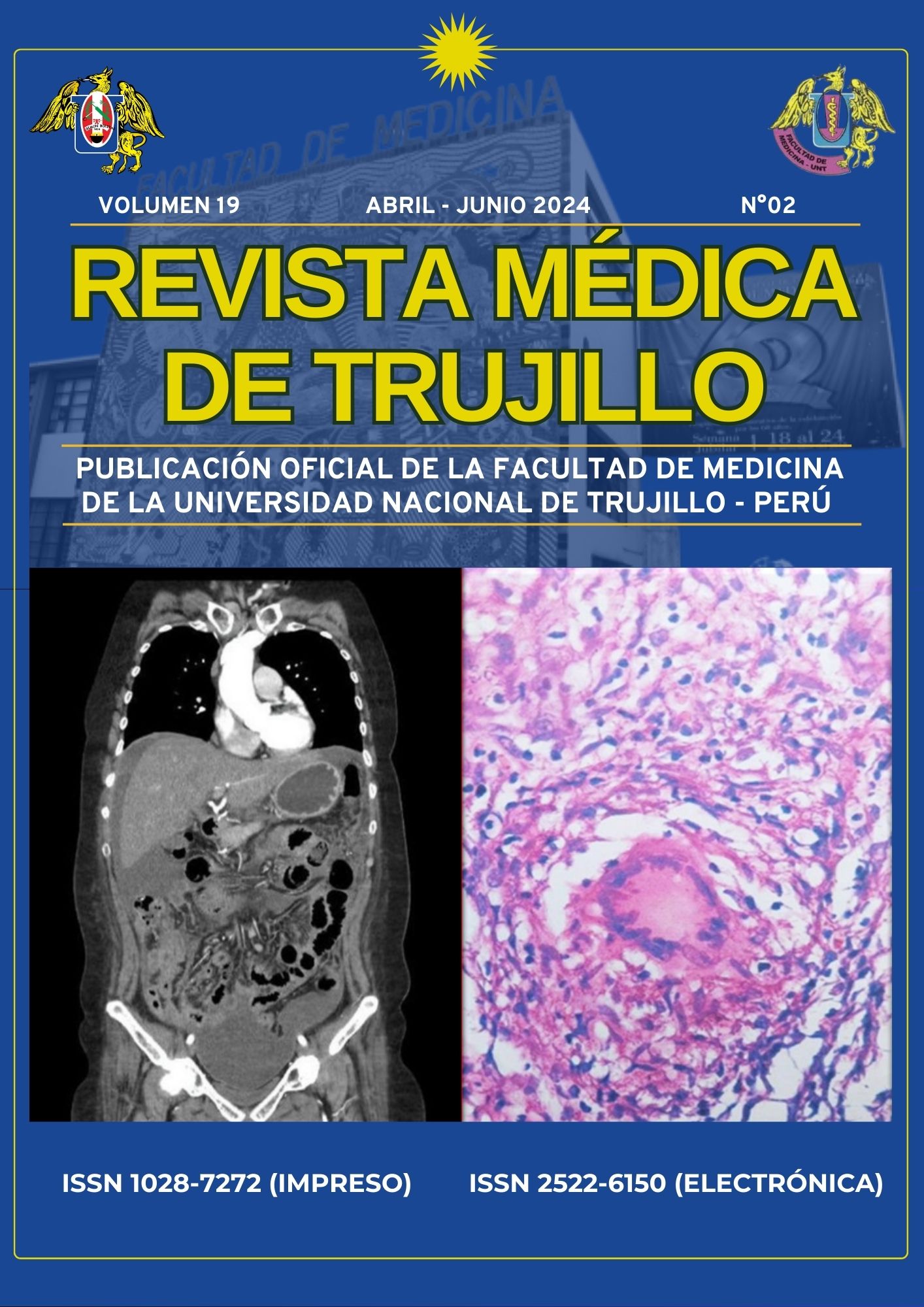Effects of caffeine consumption on oxidative stress and inflammatory modulation
DOI:
https://doi.org/10.17268/rmt.2024.v19i2.6037Keywords:
caffeine, oxidative stress, inflammationAbstract
Caffeine is an alkaloid naturally present in fruits, leaves and seeds, capable of being rapidly and totally absorbed in the intestinal tract. It is metabolized in hepatocytes by the action of the cytochrome P450 enzyme, CYP1A2, which gives monoxanthine as a product, a substrate for xanthine oxidase. Consumed in correct doses, that is, less than 400 mg/day, it has various beneficial reactions in the body, such as the inhibition of lipid peroxidation products and the reduction of reactive oxygen species (ROS), the main responsible for various human pathologies. Similarly, it acts on inflammatory modulation by acting according to its concentration on adenosine A1 and A2a receptors in the immune system and nervous system, and by reducing reactive oxygen species, blocking the stimuli that trigger nuclear factor kappa-light-chain-enhancer of activated B cells (NF-κB) activation. involved in apoptosis, cell proliferation and inflammation.
Caffeine intake is related to certain pathologies and physiological conditions, including Parkinson's disease, Alzheimer's disease, high blood pressure, type 2 diabetes mellitus, coronary heart disease and myocardial infarction. However, although its antioxidant and anti-inflammatory capacity has been demonstrated, there are investigations that question its relevance by stating that the clinical importance of its action is insufficient. In any case, caffeine in adequate doses does not cause damage to health.
Downloads
Published
How to Cite
Issue
Section
License
Copyright (c) 2024 "Los autores conservarán sus derechos de autor y garantizarán a la revista el derecho de primera publicación de su obra"

This work is licensed under a Creative Commons Attribution-NonCommercial 4.0 International License.















